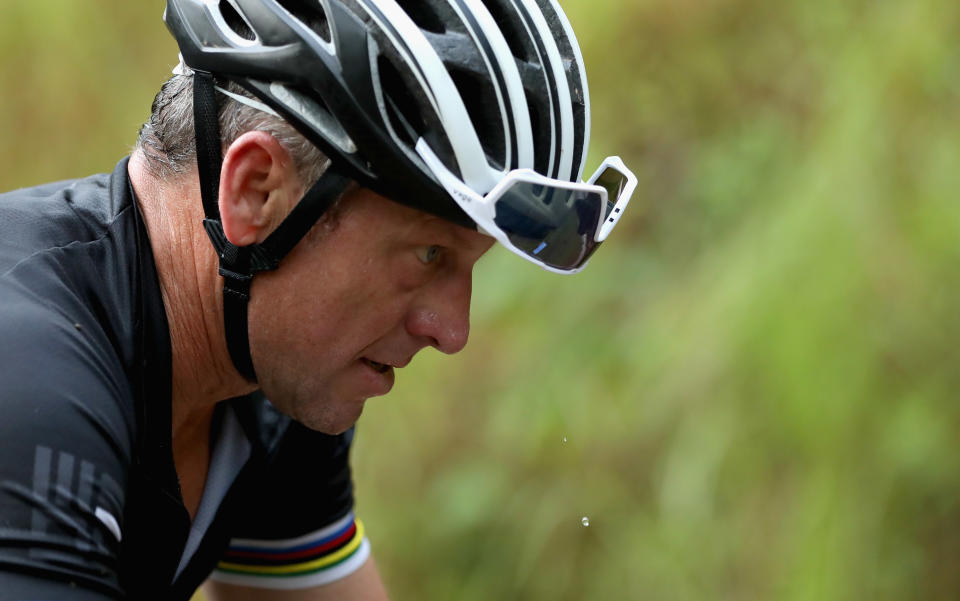Lance Armstrong says he doesn't know if doping caused his cancer: 'I certainly wouldn't say no'
One week after the finale of ESPN’s “The Last Dance,” the network decided to follow up the smash-hit documentary with a look at a figure much, much more controversial than Michael Jordan: disgraced cycling great Lance Armstrong.
In Part 1 of “LANCE” aired on Sunday, ESPN focused on the early life of Armstrong, his rise through the cycling world and his cancer diagnosis.
The latter subject led to a very sensitive question: Was Armstrong’s testicular cancer a product of his admitted doping?
Armstrong’s answer was that he is uncertain, but does not rule out the possibility.
"I don't know the answer to that."
—Lance Armstrong when asked if he thought he got cancer because of doping pic.twitter.com/Fo3YnIJtow— ESPN (@espn) May 25, 2020
Armstrong’s full answer:
I don’t know the answer to that. I don’t want to say no because I don’t think that’s right either. I don’t know if it’s yes or no, but I certainly wouldn’t say no. The only thing I will tell you is the only time in my life that I ever did growth hormone was the 1996 season. So just in my head, I’m like “growth ... growing ... hormones and cells.” If anything good needs to be grown, it does. But wouldn’t it also make sense if anything bad is there, that it too would grow?”
The timeline of Armstrong’s cancer and doping goes like this. By his own admission in the early minutes of the documentary, Armstrong began doping when he was 21, which would have been around 1992. Armstrong revealed his cancer diagnosis in October 1996.
Armstrong points to his use of growth hormone in 1996, and wonders if there could be a link between use of growth hormone and an illness that is by definition the abnormal growth of cells.
The question was posed when Armstrong revealed his doping in 2013 and the answer was similar to Armstrong’s: uncertain, but it would be irresponsible to rule out. The science connecting use of growth of hormone and cancer seems not insignificant. A Harvard Medical School publication mentions that some research suggests an increased risk of cancer in general with the use of growth hormone.
It’s likely impossible we’ll ever get a firm answer if Armstrong’s cancer — the story that helped turn him into one of the most beloved athletes in America — really was caused by his doping, meaning it will go down as just another part of one of the most frustrating legacies in sports history.

More from Yahoo Sports:

